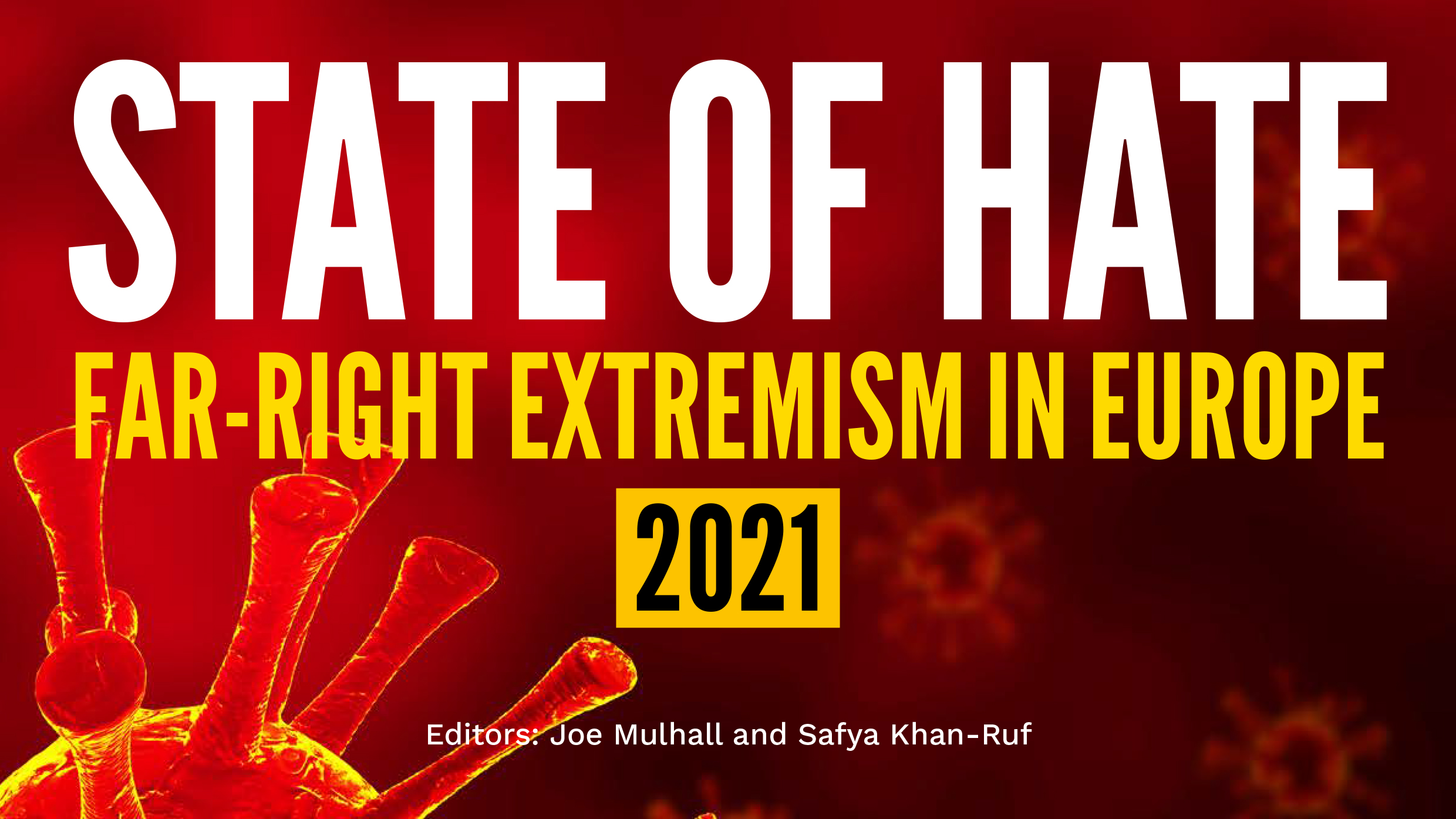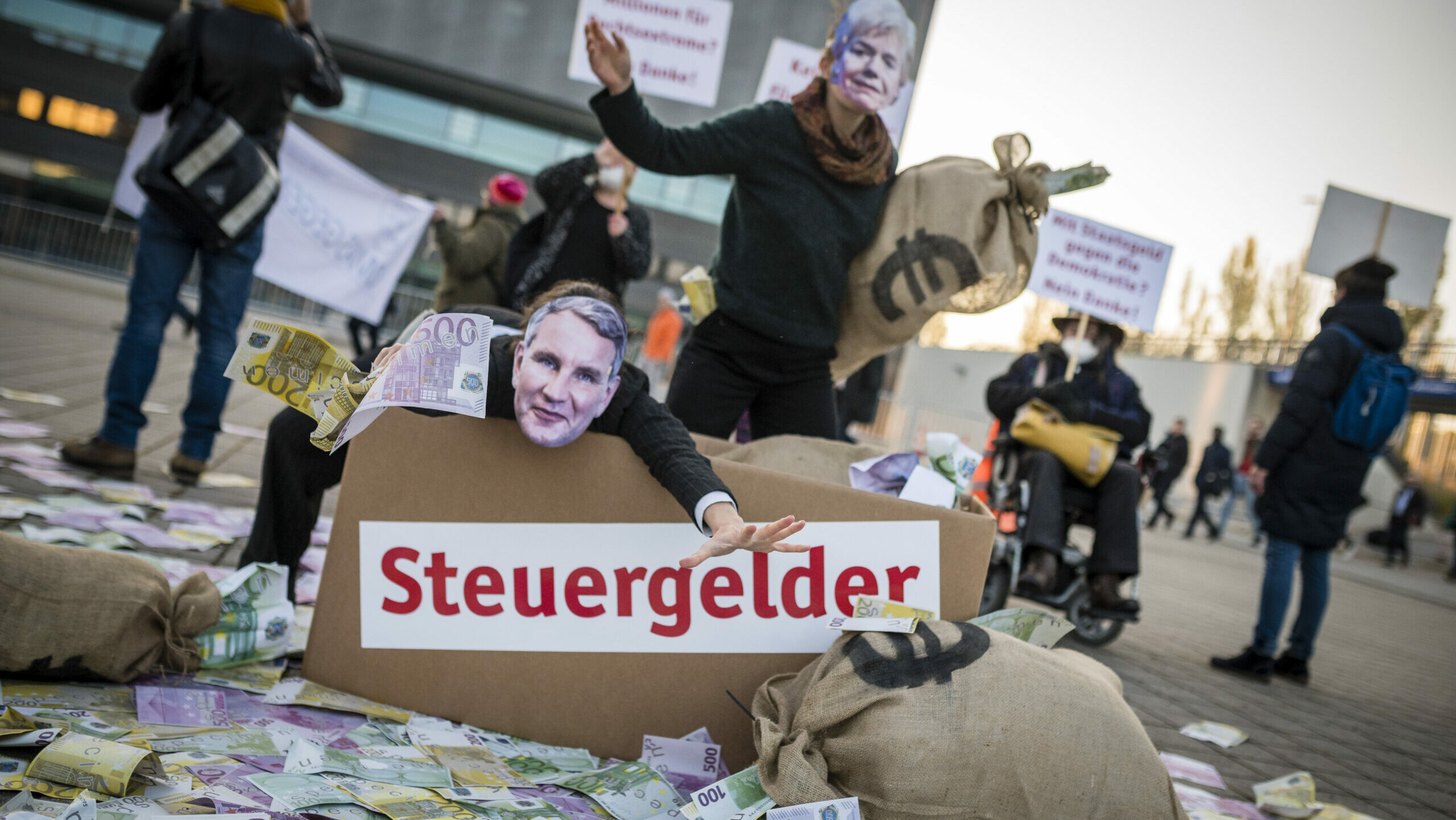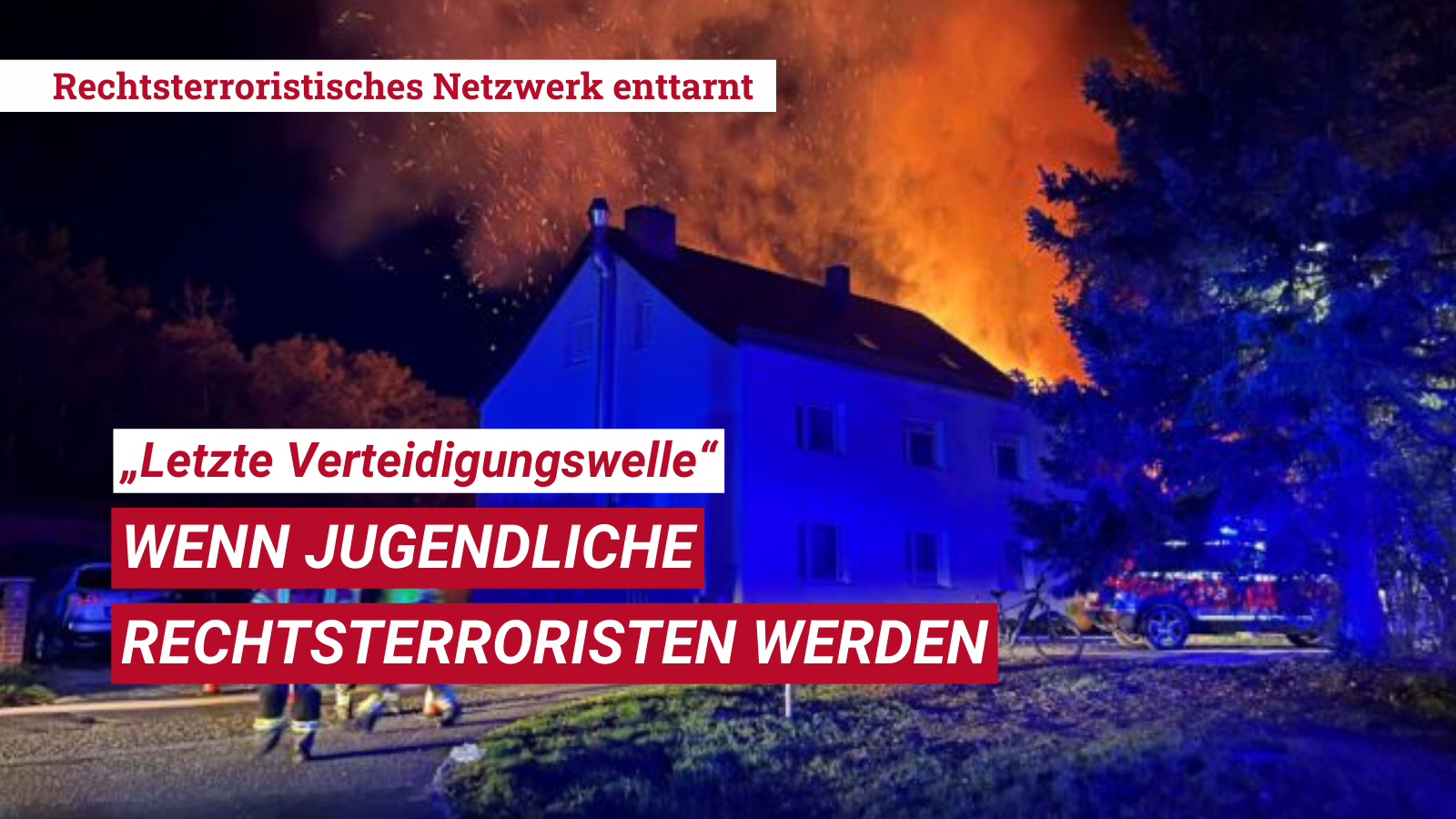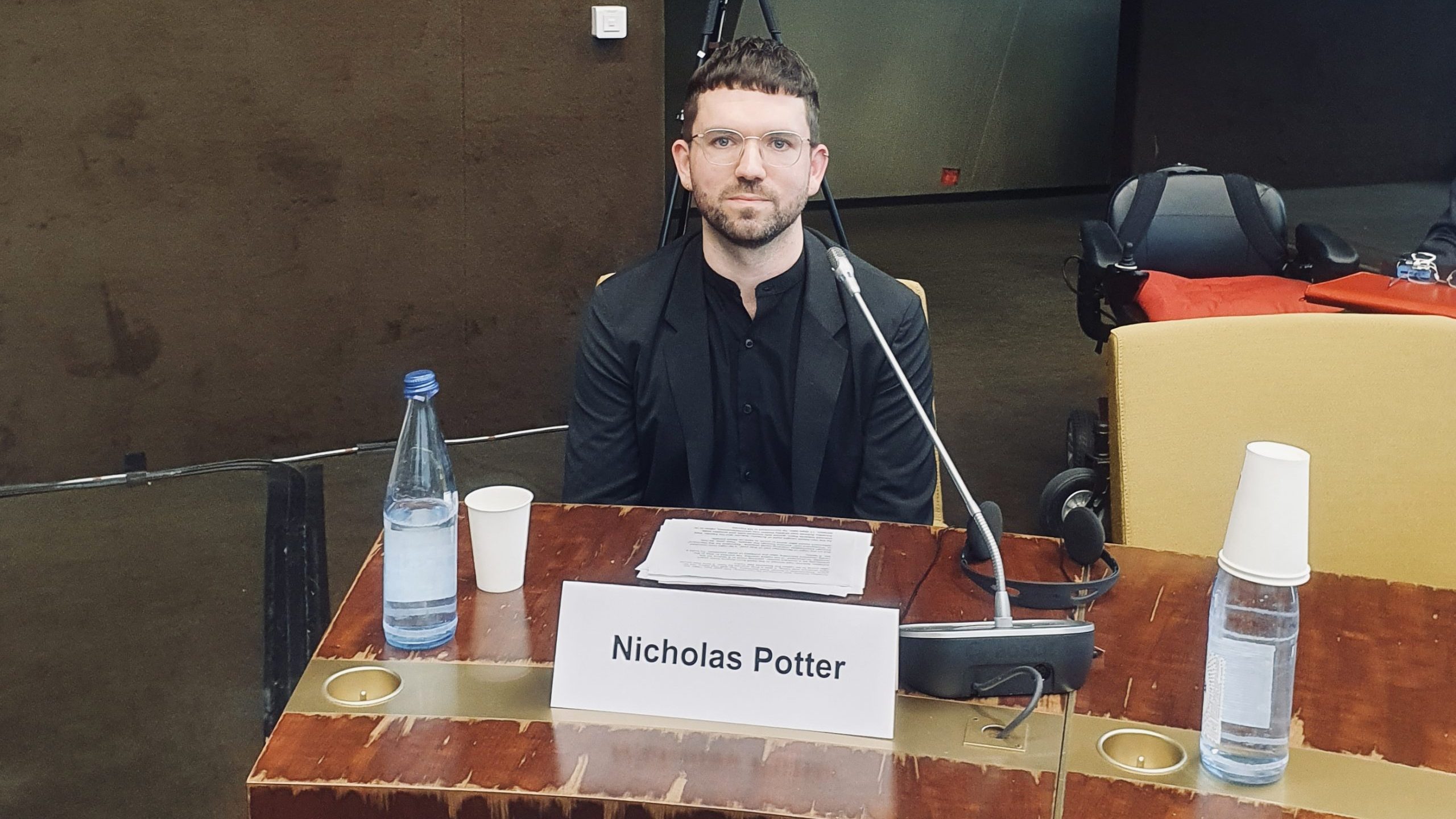The far-right may often act locally, but it sees itself as part of an international antidemocratic fight – an alarming phenomenon that presents a new and real threat. This trend has been documented in the new report “State of Hate: Far right extremism in Europe”, written by NGOs from across Europe under the coordination of Hope not Hate (UK), Expo (Sweden) and the Amadeu Antonio Foundation (Germany).
The year 2020 will forever be marred by the global pandemic which spread around the world, locking us in our homes, hiding our faces behind masks and tragically taking hundreds of thousands of lives. As we enter 2021 the death toll continues to rise though the arrival of numerous vaccines has provided a much needed glimmer of hope. However, while a thin shard of light has begun to lift the seemingly unending darkness of last year, the ramifications of the pandemic will continue to be felt for years to come; not least the impending economic crisis set to grip the world economy. Yet, it has by no means been all bad news. In the face of such tragedy we have seen communities come together, neighbours and strangers helping one another and examples of heart-breaking sacrifice, love and hope.
2020 was also a year of anger with millions of people around the world hitting the streets to chant “I can’t breathe” in protest against the murder of George Floyd. Black Lives Matter (BLM) protests in over 60 countries across all seven continents, including Antarctica, raised the issue of racism and systemic inequality up the political agenda. Statues fell, street names changed and national conversations about racism, imperial and colonial legacies filled column inches and TV screens. In Europe BLM protests have often taken on a domestic inflection, reflecting local issues such as the death of Adama Traoré which became a central element of protests in Paris. What started on the streets of Minneapolis in May birthed a global moment of protest.
Unsurprisingly, for the European far right both the global pandemic and the Black Lives Matter protests were seen as opportunities. Though much of the European far-right has failed to exploit the pandemic as much as they hoped, it has ushered in a new age of conspiracy theories as people seek comfort in simple and monocausal explanations for a world seemingly out of control. Huge anti-lockdown and conspiracy theory demonstrations have been seen across Europe with especially large events in London and Berlin. The long-term effects of this are hard to quantify but there is certainly a danger that conspiracy theory communities online are providing new trajectories of radicalization, especially towards more overtly antisemitic conspiracy theories. When it comes to BLM, the European far-right has erupted in conniptions, rejecting any discussion of racist societies and in some cases, pivoting towards increasingly overt racial politics, a tactic that is unlikely to pay dividends for them in the long term.
Amongst the chaos and tragedy however, there have been moments of genuinely good news. In October, after a trial lasting more than five years, the leadership of the Greek neo-Nazi party Golden Dawn were found guiltily of running a criminal organisation. In 2012 shockwaves were felt across the continent as the party secured 18 MPs amidst the turmoil of the financial crisis. However, following the murder of an anti-fascist in 2013 a criminal enquiry began, though many held little hope it would have the huge ramifications it has. Golden Dawn’s leader Nikos Michaloliakos and six senior colleagues were convicted of heading a criminal organisation, Giorgos Roupakias was found guilty of murder and fifteen others were convicted of conspiracy. The trial has decimated one of the most dangerous neo-Nazi organisations on the continent, though the threat of extreme right violence in Greece remains.
November saw more good news as Donald Trump lost the Presidential election to Joe Biden and Kamala Harris, the highest-ranking female elected official in American history. The result was a major setback for the European far-right, much of which had closely aligned themselves to him, especially the far-right regimes in Poland and Hungary. However, now is not the time for complacency. Over seventyfour million American’s still voted for him in 2020. They voted for him after he called the neo-nazis and fascists at Charlottesville “very fine people”; after he imposed a Muslim travel ban; after he withdrew from the Paris Agreement on climate change; after he retweeted anti-Muslim videos from the deputy leader of Britain First and after he separated migrant children from their parents. Trump may have lost but there are millions of people in America and around the world that still agree with him. His defeat is a welcome setback and further proof that the rise of the right is not inevitable or undefeatable but across large parts of the globe societies are still moving away from liberal, progressive and democratic norms and towards fragmented, divided and anti-egalitarian societies. The pillars of liberal democracy continue to wobble.
The year came to an end with the United Kingdom finally fulfilling the promise of Brexit by leaving the Customs Union and the Single Market on 31 December 2020. The causes of Brexit were complex and by no means all far-right but anti-immigrant sentiment played a key role and it no doubt buoyed much of the European far-right. In the UK the far-right has already shifted its attention towards anti-migrant and anti-Chinese politics but for much of Europe the far-right will continue to wrestle with their own changing attitudes towards the European Union in the coming years.
An international far right
It is important to state from the outset that any overview of the European far right will necessarily talk in broad terms. This is especially important to understand when talking about the contemporary online far right. While it remains important to explore trends in traditional far right organisations such as political parties, the modern far-right is currently undergoing a broader and more fundamental shift; namely the emergence of a transnational and post-organisational threat. The European far-right scene today is a mixture of formalised far-right political parties, such as the Sweden Democrats, Vox in Spain, Lega in Italy and the AfD in Germany, and a series of looser, transnational far-right movements comprised of a disparate array of individuals collectively but not formally collaborating.
In the age of the internet we have seen the emergence of disparate movements such as the anti-Muslim ‘counter-jihad’ movement and the international alt-right. While all these groupings have formal organisations within them, they are often post-organisational. Thousands of individuals, all over the world, offer micro-donations of time and sometimes money to collaborate towards common political goals, completely outside traditional organisational structures. These movements lack formal leaders but rather have figureheads, often drawn from an increasing selection of far-right social media ‘influencers’. For most of the post-war period, ‘getting active’ required finding a party, joining, canvassing, knocking on doors, distributing leaflets and attending meetings. Now, from the comfort and safety of their own homes, far-right activists can engage in politics by watching YouTube videos, visiting far right websites, networking on forums, speaking on voice chat services like Discord and trying to convert ‘normies’ on mainstream social media platforms like Twitter and Facebook. The fact that this can all be done anonymously greatly lowers the social cost of activism.
These new movements are best understood as a many-headed hydra. If one prominent activist or leader falls from grace, it is no longer a fatal hammer blow; others will simply emerge and the besmirched are discarded. Of fundamental importance is that these movements are genuinely transnational. While activists will generally be primarily preoccupied with local or national issues, they invariably contextualise them continentally or even globally. Often activists from all over the world come together for short periods to collaborate on certain issues and these loose networks act as synapses passing information around the globe. An Islamophobe in one country outraged by the serving of halal chicken in their local fast-food restaurant can post on social media and the story will spread through the network. If picked up by a ‘supersharer’ (an especially influential activist with a large social media following) that local story will be picked up by likeminded Islamophobes all over the world and act as more ‘evidence’ and further convince them of the threat of ‘Islamification’.
If we are to truly understand the contemporary far right, we must therefore change our thinking. We live in a shrinking world: be it in our own community, our own country, continent or globe, we are interconnected like never before. Our ability to travel, communicate and cooperate across borders would have been inconceivable just a generation ago and while these opportunities are by no means distributed evenly, they have opened up previously impossible chances for progress and development. Yet greater interconnectivity has also produced new challenges. The tools at our disposal to build a better, fairer, more united and collaborative world are also in the hands of those who are using them to sow division and hatred around the world. If we want to understand the dangers posed by the politics of hatred and division we can no longer just look at our street, our community or even our country, we must think beyond political parties, formal organisations and even national borders. As such, all of the phenomenon discussed in this report should be understood as occurring to different extents in different parts of the European far-right, meaning both formal far-right organisations and postorganisational movements.
Main far-right events in 2020
Terror Attack in Germany
In February there was a mass shooting by a far-right terrorist in Hanau, Germany, taking the life of 10 people in an attack on two shisha bars frequented mainly by people with an immigrant background. It was the second deadly far-right terror attack in Germany in less than half-a-year, following the attack against a synagogue and kebab shop in Halle in October 2019. Also, in June 2020, Germany’s defence minister ordered the partial dissolution of the elite KSK commando force amidst growing criticism of right-wing extremism in its ranks.
Far-right Victory in Polish Presidential Election
In July Andrzej Duda of the far-right Law and Justice party narrowly beat challenger Rafal Trzaskowki in the Polish presidential elections. The result came after an ugly anti-lgbt campaign and is likely to mean further controversial reforms to the judiciary and more opposition to gay rights and abortion rights.
Christchurch Shooters Extensive Links to European Far Right Revealed
In August the Christchurch killer Brenton Tarrant was sentenced to life in prison without the possibility of parole after pleading guilty to 92 counts of terrorism, murder and attempted murder. A Royal Commission into the attack was released in December found that the killer had made at least 16 donations to international far-right groups and people since 2017, including a total of £2,500 to numerous European branches of the Identitarian network Generation Identity.
Golden Dawn Trial in Greece
In October, after a trial lasting more than five years, the leadership of the Greek neo-Nazi party Golden Dawn were found guiltily of running a criminal organisation. Golden Dawn’s leader Nikos Michaloliakos and six senior colleagues were convicted of heading a criminal organisation, Giorgos Roupakias was found guilty of murder and fifteen others were convicted of conspiracy. The trial has decimated one of the most dangerous neo-Nazi organisations on the continent, though the threat of extreme right violence in Greece remains.
Legal Troubles for Matteo Salvini in Italy
In October, ex-interior minister Matteo Salvini of the far right Lega party went on trial on kidnapping charges over an incident in 2019 when he prevented 116 migrants from disembarking in Sicily. If found guilty he could face up to 15 years for aggravated kidnapping.
Key trends in 2020
The rise of conspiracy theories and QAnon in Europe
- 2020 saw a dramatic increase in the number of people engaging with conspiracy theories during the Covid-19 Pandemic.
- Across Europe we’ve witnessed the birth of a number of conspiracy theory-driven protest groups that have taken to the streets, driven by a strongly anti-elite, anti-lockdown and antivaccine agenda.
- Responsibility for the spread of conspiracy theories partially lies with digital platforms and social media, which has helped false information of all kinds spread faster and more aggressively.
- Covid-19 related conspiracy theories have provided a worrying new route towards antisemitic politics. Online spaces used to push anti-lockdown and conspiratorial explanations for the pandemic are providing a different pathway, one by which the incremental steps that build towards antisemitism, Holocaust denial and admiration for Hitler are in fact a progression through different conspiracy theories, which may contain antisemitic undertones but do necessarily require them.
- While starting in America is 2017, 2020 saw the arrival and growth of the QAnon Conspiracy Theory across Europe, especially in the UK and Germany. The theory has developed beyond its roots in the intensely hyperpartisan and US-centric right into a broader, less uniform type phenomenon with distinctly European inflections. As it stands today it is a decentralised, grand and multifaceted phenomenon, at once a conspiracy theory, a political movement and a quasi-religion, with variants tailored to chime with different subcultures and national contexts.
Racial nationalism on the rise
- 2020 saw the European far-right become extremely animated in response to the Black Lives Matter demonstrations that took place across the continent.
- Existing racial nationalist activists and organisations, already preoccupied with the concept of race, have used the Black Lives Matter protests to push their existing political platform to a wider audience.
- Some elements of the far-right that have traditionally distanced themselves from open racial politics, promoting instead ‘cultural nationalism’, have become more willing and open to explicitly racial politics in response to Black Lives Matter protests. Whether this shift is permanent will remain to be seen but in the short-to-medium term we have seen cultural nationalism cede ground to racial nationalism within parts of the European far-right.
Far-right terrorism – continues to pose a threat
- Far-right terrorism in 2020 largely continued the worrying trend of 2019 with a large number of arrests and an active online scene propagating for terrorism and violence.
- The current far-right terror threat constitutes a network of loosely organised groups which connects individuals internationally. These groups main purpose is to encourage individuals to perpetuate acts of violence, to network them and share knowledge rather than formally plan attacks. The groups are often modelled after previous groups and are often short-lived.
- Activists often engage with multiple groups simultaneously and often find new networks to engage in if one is dismantled. This means that the threat is difficult to counter as shattering individual groups has little lasting effects.
- Terrorism partially motivated by conspiracy theory beliefs as well as environmentalism, often termed eco-fascism, are relatively new trends and attacks related to these themes remain a serious possibility.
Continued internationalisation
- While it remains important to explore trends in traditional far right organisations such as political parties, the modern far-right is currently undergoing a broader and more fundamental shift; namely the emergence of a transnational and post-organisational threat.
- While activists will generally be primarily preoccupied with local or national issues, they invariably contextualise them continentally or even globally. Often activists from all over the world come together for short periods to collaborate on certain issues and these loose networks act as synapses passing information around the globe.
- If we want to understand the dangers posed by the politics of hatred and division we can no longer just look at our street, our community or even our country, we must think beyond political parties, formal organisations and even national borders.
Polling: key headlines
- The far right has had mixed fortunes politically during 2020, with those in Government having a sharp drop in support, while others benefiting from unpopular Government responses to Covid-19 benefiting or non-covid related issues being strongly felt by the people. In Italy, the fascist Brothers of Italy is now at 12% in the polls, double the vote it obtained in the 2018 General Election. In Sweden, where crime is above health in voters concerns, and immigration third, the far right Swedish Democrats are now on 21%, compared to the 16% it polled in the 2018 election.
- Far right parties that are in Government however have suffered badly during the pandemic. The ruling Law and Justice Party in Poland is now polling 18.4%, compared to the 32% it achieved in the 2019 General Election, while Five Star Movement, which is more populist than traditional far right, has seen support slip from 28% in 2018 to just 12% now.
- Most people have been supportive of the lockdown measures implemented in their respective countries, with 64% backing Government measures in Germany and just 13% opposing them.
- There is a deep sense of unease in many countries about the state of their political system and the direction of their country was going in. Two-thirds of people in France think that their political system is broken, while only 6% of Britons think it is working “very well”. However, there are more positive feelings in other countries with the state of their democracy, with 60% of Germans thinking it works well.
- Attitudes towards minorities are poor across all eight countries surveyed, though some are quite appalling. Two-thirds of Italians (67%) have negative views on Roma, while 60% of Hungarians have negative views on immigrants. The most positive attitudes towards minorities are amongst the British, but the 29% positive attitudes towards Muslims is still depressingly low.
- While attitudes towards minorities are poor, more people felt that the Black Lives Matter protests highlighted racism and discrimination experienced by minority communities. However, only in Germany (52%) and the UK (51%) was this sentiment shared by a majority of people. In Hungary, the figure was just 23%.
- Attitudes to conspiracy theories vary greatly from country to country, and often depend on whether the issue taps into existing concerns and prejudices. In Hungary, where President Orban has riled against EU interference and the dangers immigration pose to European identity, 45% agree that elites are encouraging immigration to weaken Europe. Likewise in Italy, where there has been political anger at the refusal of the EU to provide greater support for immigration issues, 39% agree.
- The vast majority of respondents in all eight countries dismiss notions that the Covid-19 vaccine will be maliciously used to infect people with poison. However, 22% of Poles, 20% of Hungarians and 16% of Italians do believe this to be the case. Only 48% of Poles believe this claim to be “probably” or “definitely” false. In the UK, only 7% believe poison will be infected via the Covid-19 vaccine, while 79% disagreeing.
- There is much larger support for the claim that ‘Hollywood’s elite, governments, media and other high officials are covertly involved in large-scale child smuggling and exploitation’, one of the key claims of QAnon followers. A third of respondents in Poland believe this claim to be definitely or probably true, while only 27% think it is false. In Germany, 21% believe this statement to be true, compared to 48% who think it is false.
This text first appeared in the report “State of Hate: Far right extremism in Europe”, published by a collaboration of NGOs and researchers across Europe and coordindated by Hope not Hate (UK), Expo (Sweden) and the Amadeu Antonio Foundation (Germany), the parent organisation of Belltower.News.
Download the report here:
- State of Hate: Far-Right Extremism in Europe (2021) (pdf)
- Polling of opinion in Europe
- Covid-19 and the European far right
- Conspiracy ideologies during the pandemic: the rise of QAnon in Europe
- The far-right backlash against the Black Lives Matter movement
- Spotlight on the Western Balkans: far-right trends in the region
- The growing threat of far-right terrorism in Europe
- Spotlight on Poland: the rise of Konfederacja
- Country by country section




